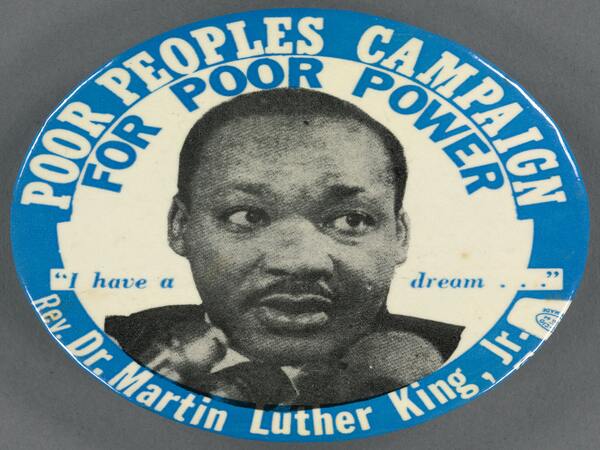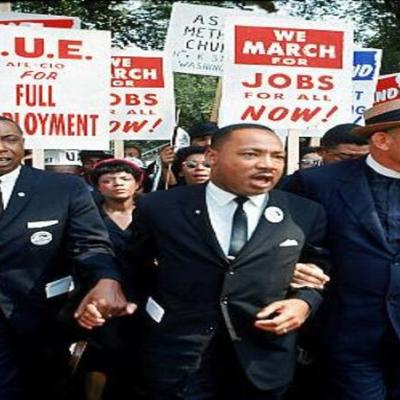Today, we live in the wake of one of the largest social movements in US history being largely unsuccessful in creating institutional change. We live approaching a climate catastrophe that has already decimated entire nations and threatens to expand exponentially. We live in “the richest country in the world,” where over sixty percent of working people live paycheck to paycheck, including half of those earning six figures.
On January 16th we will celebrate Martin Luther King Jr. Day. For those who know MLK as the MLK depicted in the American zeitgeist, a nonviolent activist that championed racial equality, celebrating MLK day may bring mixed emotions given the litany of issues in our world that interconnect with and go beyond race. Thankfully, this MLK never existed.
MLK consistently advocated for social, economic, and political ideas relevant to contemporary struggles. His opinions on these issues were often what we call “radical”. A few examples:
“I am much more socialistic in my economic theory than capitalistic… Today capitalism has outlived its usefulness.” – Letter to Coretta Scott, 1952.
“The evils of capitalism are as real as the evils of militarism and evils of racism.” – Speech to the SCLC Board, 1967.
“The solution to poverty is to abolish it directly by a now widely discussed matter: the guaranteed income… The time has come for us to civilize ourselves by the total, direct and immediate abolition of poverty.” – Where do We Go from Here?, 1967
He also understood how issues considered separate from economics and anti-Black racism were connected. He told Cesar Chavez that he saw their struggles as one, and said the same to Vietnam War protestors. His intersectional social analysis was fueled by a vision of the world as intertwined itself.
“We are all caught in an inescapable network of mutuality tied into a single garment of destiny. Whatever affects one directly affects all indirectly.” – Speech at Ebenezer Baptist Church, 1967
It is a disgraceful reality that this MLK has been exiled from the popular narrative. Regardless, he is for you, reader, now as he was then: prescient and radical.
Then there is the issue of MLK’s nonviolence. Popular video of MLK’s marches presented without the proper context communicates a disturbing idea: social change happens when the oppressed take violence without resistance. Once again, this discouraging idea is disconnected with reality.
MLK’s use of nonviolence was deliberate. He made sure that the brutality levied against his protests was always presented to an audience and he used the collective sympathy of that audience to facilitate change. Arguing for nonviolence as a blanket response to systemic violence in the name of MLK only serves to pacify those who want to resist.
The blacklisting of MLK’s radical politics shows that we must complicate ourselves despite every force that tells us to simplify in fear that we will break from the status quo. The way MLK strategized resistance instructs us to aim our frustration and anger deliberately. We must use these tools to rise above apoliticism and inaction.
We should have done this yesterday, and we are surely telling ourselves that we will do it tomorrow. These thoughts are both inadequate. Yesterday is gone, and tomorrow is but an idea. Our urgency must be today. For MLK Day, we act.

